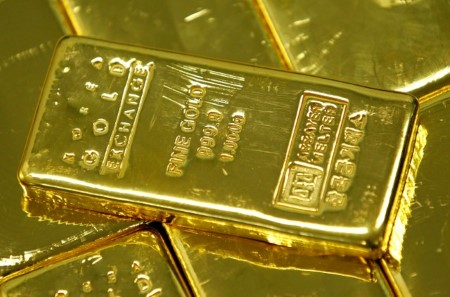




Policy Rate Updates: BSP outlook — cloudy with a chance of rate cut
 DOWNLOAD
DOWNLOAD

January Economic Update: Growth slows, prices rise
 DOWNLOAD
DOWNLOAD

Inflation Update: Up, up, and away?
 DOWNLOAD
DOWNLOAD


Gold dips as strong US dollar, yields dent appeal

Oct 24 (Reuters) – Gold prices slipped on Monday, weighed down by a firm dollar and elevated US bond yields, while expectations of another hefty rate hike by the Federal Reserve kept investors on the sidelines.
Spot gold fell 0.5% to USD 1,648.60 per ounce by 1:50 p.m. ET (1750 GMT). US gold futures settled 0.1% lower at USD 1,654.10.
The dollar gained 0.2% against its rivals, making greenback-priced bullion more expensive for overseas buyers, while benchmark 10-year Treasury yields hovered near their recent peak.
“The market is still in wait-and-see mode… what will the Fed signal as far as the weakness they’re seeing in the economy… that for the short term should be somewhat supportive for gold,” said Edward Moya, senior analyst with OANDA.
But “inflation is a hard beast to kill. The Fed is going to take its time with these rate hikes before signalling that pivot.”
Markets have priced in a 75-basis-point interest rate hike by the Fed in November, but are now scaling back bets for a similar hike in December after reports that Fed officials will likely debate the size of future increases.
A survey showed US business activity contracted for a fourth straight month in October, the latest evidence of an economy softening in the face of high inflation and rising interest rates.
“Gold could potentially rally to USD 2,250 per ounce in case of a sizable US recession and fall to USD 1,500 per ounce in an ultra-hawkish Fed scenario,” Goldman Sachs said in a note.
Gold is highly sensitive to rising US interest rates, as these increase the opportunity cost of holding non-yielding bullion.
Elsewhere, spot silver shed 1.1% to USD 19.18 per ounce.
Palladium dropped 2.5% to USD 1,968.58, while platinum slipped 1.3% to USD 919.67.
“Within platinum group metals, we see the biggest downside risks in palladium, which remains elevated despite the lack of physical tightness and long-term demand risk from platinum substitution,” Goldman Sachs added.
(Reporting by Kavya Guduru in Bengaluru; Editing by Sandra Maler)
This article originally appeared on reuters.com





 By Reuters
By Reuters